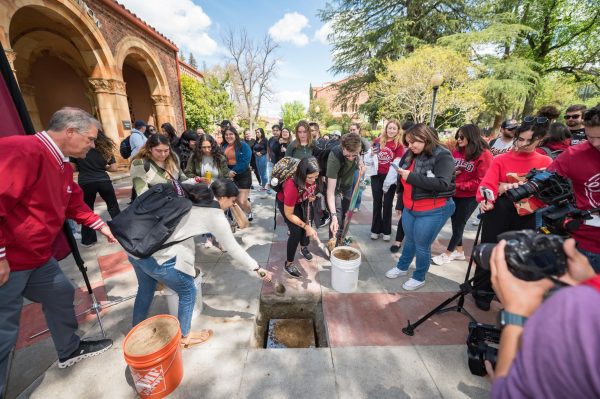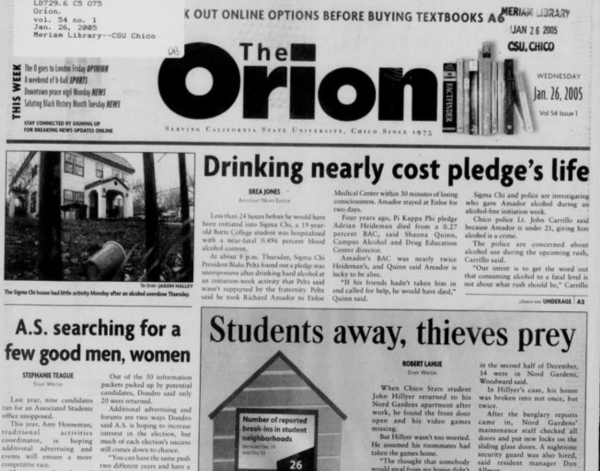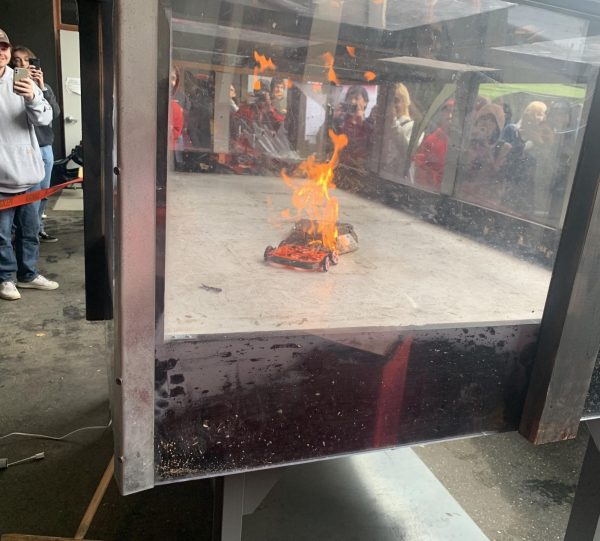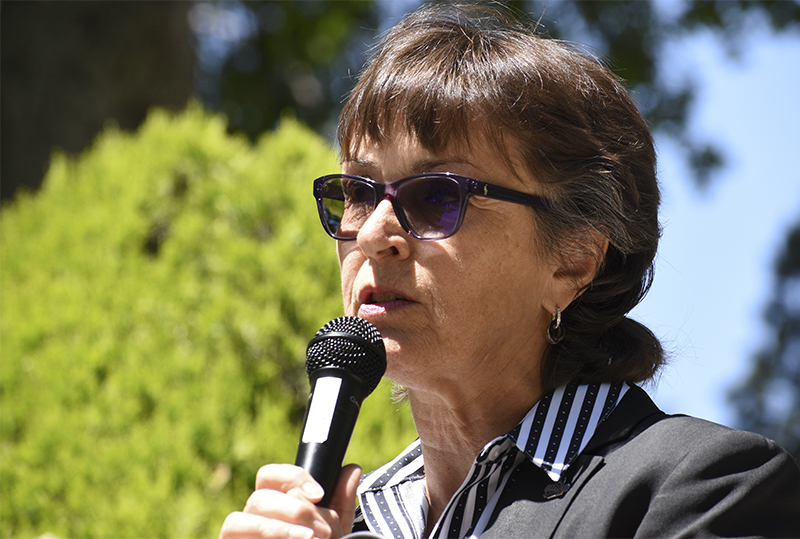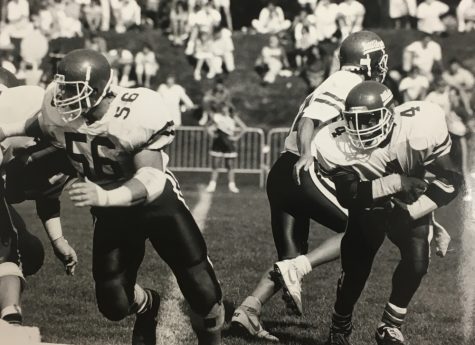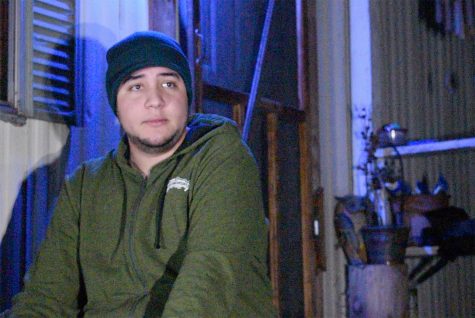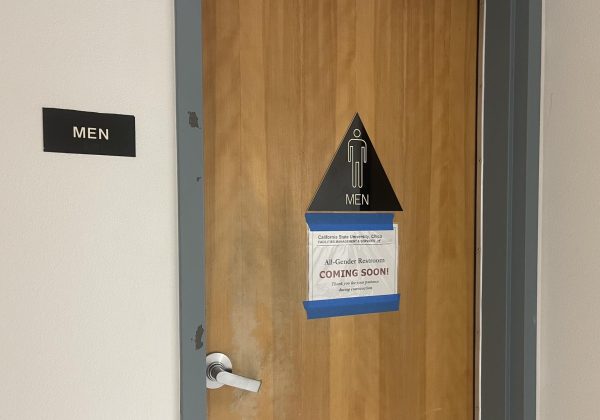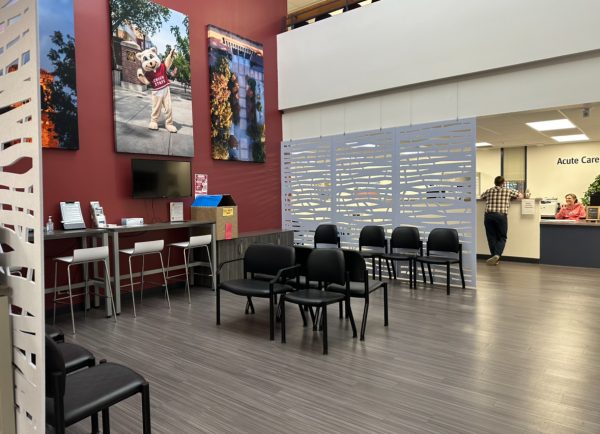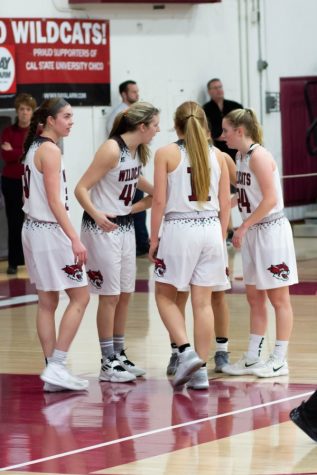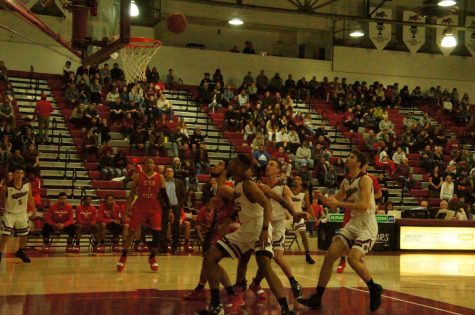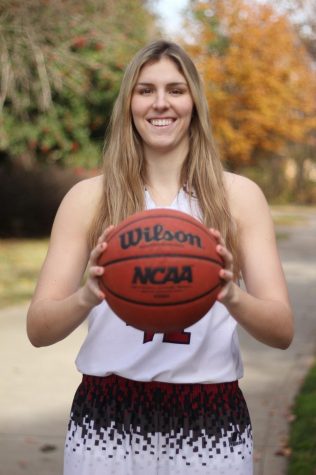President Hutchinson decides to stagger student fee increases despite advisory vote results
President Hutchinson speaks to students about how difficult it was for her to come to the conclusion to raise all three student fees. Hutchinson spoke to several students who protested the increases outside Kendall Hall Monday. She also said that the need for the fee increases stems from a lack of state funding.
Chico State President Gayle Hutchinson announced on Thursday that she would be implementing the proposed student fee increases, despite students voting against all three increases.
The announcement came Thursday at noon through an email sent to all students. President Hutchinson decided on staggering the three proposed increases, likely in support of students who worried the jump in costs would be an extreme burden on low-income students.
As such, one fee increase will be implemented per semester, starting with the Student Health Services Fee ($99 per semester) in Fall 2018, the Student Learning Fee ($40 per semester) in Spring 2019 and finally the Athletics Fee ($51 per semester) in Fall 2019.
To view the chart below on a mobile device rotate phone sideways or follow this link:
Hutchinson stated in her email that the “comments during the forums and online were more evenly split.” The recently released Final Student Fee Adjustments Report includes summaries of both the forums and the online feedback, showing that responses were much closer to neutral for the online feedback.
However, only around 200 students voted in the online feedback, approximately one percent of the student population. Furthermore, the comment cards utilized at the meetings, while about even in positive and negative feedback, only received around a 30 to 40 percent positive response rate. Only 85 students sent in response cards, out of over 17,000 enrolled students.
This is an increasingly diminishing number when placed in context next to the 5,264 students, or about 30 percent of the student body who voted on April 25 and 26. These students voted overwhelmingly against the increases as over 62 percent voted against each fee.
To view the chart below on a mobile device rotate phone sideways or follow this link:
https://create.piktochart.com/output/30104654-new-piktochart
Additionally, at a Government Affairs Committee meeting on April 30, several members expressed concerns to President Hutchinson and Vice President of Student Affairs Milton Lang. Many GAC members said they feared that voting results may be further skewed toward support of fee increases due to inaccurate information being circulated by some athletics students during the voting period.
Associated Students Director of Legislative Affairs Danie O’Donnell said at this GAC meeting there were flyers around campus that reported false information.
“There was a flyer going around campus saying, ‘This is what a yes vote means … This is what a no vote means.’ It (stated) under the fees, certain clubs that would be funded or not funded,” O’Donnell said.
“There was a club listed as funded by one of the fees that’s actually not funded under one of the fees. Model UN is not funded by student (learning) fees,” she added.
Model UN is funded under the Instructionally Related Activity Fee, a completely separate fee that is not under consideration to be raised. Model UN is one of Chico State’s most successful programs, recently winning Outstanding Delegation at the National Model United Nations Conference in New York City. Therefore, its inclusion on the list of programs funded by the Student Learning Fee could sway students’ vote.
Regardless, Hutchinson had the final decision on the fee increases. Her decision matches up with an administration that is mandated to keep an eye on both the fiduciary duties of the university, as well as student well-being.
To view the chart below on a mobile device rotate phone sideways or follow this link:
https://create.piktochart.com/output/30223430-new-piktochart
Her decision to stagger the fee implementation and establish the athletics fee a year late will end up costing some amount of extra reserve money to keep the athletics program afloat. As the rationale for proposing the fees is based on dwindling university reserves, this sacrifice represents a nod to serious student concerns over economic well-being.
The fees will still cost students over $380 per year by the 2019-2020 academic year. It’s clear that concerns about student financial well-being and equity in education still exist and perhaps will always be a part of the academic experience at Chico State.
Grayson Boyer can be reached at [email protected] or @theorion_news on Twitter.

